Part 3 of 4 video interviews with SF Giants – Social Media Director – Bryan Srabian
Ok….so we’ve discussed how social media can help sports teams engage with their fans.
But, is it possible (or appropriate) to look at social media as a way to increase revenues?
Social media sponsorship and monetization are hot topics and one of the major opportunities and challenges for all sports teams looking for ways to add value to new and existing corporate sponsorships.
Monetizing Social Media In Sports – Key Takeaways
In this video clip we talk with Bryan about:
- How Virgin America has leveraged the popularity of #FearTheBeard in their #FlyTheBeard campaign
- How Toyota is using social media to activate their sponsorship with the SF Giants and catcher Buster Posey
- Why you shouldn’t focus on ROI and monetizing when considering social media integration in sponsorship deals
- How the SF Giants are leveraging social media to sell tickets using their “dynamic pricing model”
Trevor Turnbull: So it’s a good seg-way right now because we were talking about tickets and monetizing and sponsorship.
There’s a couple of things that I’ve seen you guys do, two things in particular. Most recently the Fly The Beard campaign that you have going on with one of your sponsors, Virgin America. Then the Dynamic Deals that I also see you guys promoting once in a while too.
Let’s talk about the Virgin America partnership that you guys have first of all. For those people who don’t know, I’ll maybe let you explain it Bryan, but it’s a Virgin plane with Brian Wilson’s beard on it.
Bryan Srabian: Well it’s a Virgin America plane with a beard. Obviously Brian Wilson might be our most famous beard but we also, in 2010, our entire bullpen had beards. Now Brian Wilson has a beard, Sergio Romo has a beard, a few other guys kind of grow beards and whatnot.
It’s kind of a team-wide thing now.
Yeah. The fans kind of made the moniker “fear the beard” popular. We have children wearing beards, we have babies wearing beards, dogs with beards.
If you come to a game in San Francisco you see a lot of crazy things. You see Tim Lincecum wigs, you see Brian Wilson beards.
Virgin America is obviously an airline and they’re, to me, obviously a sponsor but aside from that one of the more innovative companies just in general. I think any marketing person should just study what they do and appreciate what they do. I’m learning a lot from them just watching them on Twitter and Facebook and what they do in the social media circles. They’re following what people are doing on food trucks; they’re just, to me, one of the more innovative companies in the world. We’re really lucky to have them as a partner.
This year they named our club level – it’s the Virgin America club level. I don’t know if you’ve flown, Trevor, on a Virgin flight.
I have not yet.
I highly recommend it. It makes flying great. From the minute you check in it’s that branded experience; it’s really a unique experience for flying.
I think sponsorship and sports goes hand-in-hand. Obviously we’re in this business to activate sponsorships and sometimes sponsors do a better job of activating what they do with the team than others. I think Virgin does a fantastic job of really activating that sponsorship. Naming a Giants plane, and they didn’t just put the Giants logo on there, they actually painted the beard on the nose and they’ve dubbed it Fly The Beard, with a hashtag. There’s going to be a Twitter photo contest that they’re running, there’s going to be Giants content on the plane, on the video. They’ve kind of created this unique experience of flying and the Giants together.
When you come to the ballpark the club level reminds you of being in the plane with the lighting and the ambiance. There’s going to be an area called the Flight Deck that has firepits and it’s outdoors with views of the city that’s somewhat separate. There’s some cool things that we’re working with Virgin on and they’re working with us.
The other one that is kind of interesting is Toyota is doing an interesting sponsorship. They’re using Buster Posey, our Giants catcher, as a spokesperson and they’re doing a unique experience package contest with him. We’re going to be posting some things on our Facebook and our Twitter in conjunction with Buster, who just joined Twitter this spring and has been on Facebook and does a fantastic job. His team helps him with that. Toyota is activating and not just using Buster’s social media presence but the Giant’s social media and our Web site, activating all of those platforms to connect with Giants fans and Buster Posey fans.
So that’s another example of using social media in a team. A lot of teams, and us too, are trying to figure out the best way to activate in the social space. Is it just putting up a link saying “hey, try this out” or is it coming up with a contest, coming up with a scavenger hunt, doing something unique. Again I think this is the future of sports and sponsorship.
No doubt. I think you’re speaking to exactly what that future is, which isn’t really that overly complicated – integration right?
They’re sponsoring that club level, they’re doing the on-the-grounds activities during the game and if you can transfer that online and have the two working together you’ve kind of created this perfect storm. I’m really glad we got a chance to talk about that because the Virgin example in particular is a great example of how they’ve really been able to integrate their brand with yours too. Even the hashtag that they’re using on Twitter, #FlyTheBeard, fear the beard right?
Yeah. That goes more to their team. I think the ability for us to work with them and provide that platform for them, and I think they’re also attracted to our fans because we’re so active with them on Twitter and Facebook.
I think that’s part of it. A lot of people are like, “what’s the ROI and how do you monetize.” Don’t worry about that at first. To me the first part is creating; give sponsors a chance to want to work with you because you have such an engaged audience. When they see the numbers and see how the Giants are engaging with fans on Facebook, how they’re engaging on Twitter, they’re very active and it’s a passionate group; that becomes very attractive. It become much easier for your sales team to figure out a way to sell and to work with them.
My job isn’t to create revenue streams and sponsorship. My job is to create successful social media engagement opportunities, I guess you could say. I’m always thinking of new ways to do that but it’s a lot easier for our team to go to a sponsor and say “hey do you want to add this to your marketing activation mix?” I think that’s a huge key for us.
I’m really glad you brought that up too. One of the questions that I wanted to ask you was how you work with the other departments.
You’re right. You have your partnership, sponsorship departments, your marketing, your ticket sales. They’re not necessarily keeping their finger on the pulse of all of the opportunities that are in this space but you are. Of course talking internally is hugely valuable when it comes to those moments when sponsors come to the team and say “We want to do some of this social media stuff you guys have been talking about but where do we start?”
How do you guys approach that? Do you meet internally on a weekly basis? Is it kind of a back-and-forth? How does it all work?
Yeah. There’s constant meetings, there’s lots of emails, it depends.
You brought up earlier about our Dynamic Deals. For those who don’t know the Giants use a dynamic pricing model – each game, each ticket has a different price based on demand. Opening day, a weekend series versus the Dodgers, anytime Tim Lincecum pitches, the ticket demand is going to be a little higher and prices are going to move. It’s modeled almost after the airline industry so the earlier you buy the better deal you’ll get on tickets. Of course season ticket holders always get the best deals on tickets. With that being said, of course Opening Day prices are going to be a little bit higher because it’s harder to get tickets. But there’s going to be games Monday, Tuesday, Wednesday against opponents that don’t have such a high attractiveness to our fans and you’ll be able to get a ticket starting at $5. We have $5 this weekend against the A’s, we have $8 tickets coming up against the Marlins.
We’re able to find unique ways to promote that and have our fans on Facebook and Twitter specifically, and Google+ we’ve even used, to purchase those tickets. It’s working with the ticket department to say we’re doing check-in deals through FourSquare. We have a brand new at the ballpark app that you’ll download and you’ll check in through FourSquare with that and we’re always going to have some sort of deal. Whether it’s a free t-shirt or it could be an exclusive ticketing deal.
It’s coming up with unique ways and finding different channels and seeing what works. It’s always, like you said earlier, ideas sound great on paper but then we have numbers to either support it or figure out it didn’t work out as well as we thought it would so let’s try something else.
We’ve had a lot of success with placing promotions and unique value opportunities to fans through social media. I think that’s the key – understanding what those value propositions are. What works with this group, what doesn’t work. So you’re not just throwing all of your ticket deals out, Giants vs. Phillies this weekend, buy tickets now. It’s coming up with that unique ticket value and saying this one is going to work lets focus on this and almost doing a flash sale if that’s what you want to do, or a six pack.
I think understanding what works with those different demographics, what works with those networks and trying it out that way.
So you guys are tracking the success on the different platforms as well? If you put out a link on Twitter, for example, for these dynamic deals coming up this weekend and Facebook, they’re different. Do you track the success on both?
Absolutely, yeah. That’s the beauty of working with MLB.com and our ticketing department and being able to track everything and get into reports and learning what worked and what didn’t.
Just in general in social media I think it’s important that we do that. I try to put a lot more content out than marketing messages. Any kind of marketing message that’s still considered value to the customer; they don’t consider it an advertisement or spam, per say. They still find value in it.
That’s a challenge but it’s also part of learning the behaviors of your fans in those specific networks.
Have you found the ratio that seems to work the best? Is it one out of every five messages?
I think it’s 80/20.
That applies to everything in life right?
80/20, yeah. I wear 20% of my shirts 80% of the time right? I read that somewhere.
So one out of every five of your messages is marketing. There’s sometimes where I don’t do any marketing messages; I’m just very focused on the engagement. Like today there’s a lot of excitement about Opening Day and I think it’s just not the right time. I think people are going to be focused on the game; give me more pictures, what’s the lineup. I think it’s also that understanding of the context as well.
For sure. Alright I’m going to spin things a little bit here.
I really appreciate you taking all of this time to chat with me Bryan. I know we’ve been on the line for 45 minutes or so now.
Time has just flown by Trevor. We’re just two guys, I feel like we should have lunch now. It’s been a lot of fun for me.
I’ll definitely follow up with you on that because I am planning a nice little baseball trip down the west coast in July.
You know who to call. Tweet us @SFGiants, we’ll take good care of you Trevor.
Awesome, that’s good to know. There’s a lot of teams down the west coast, it’s going to be a fun trip. I’m dead serious too; I’m coming down there.
Watch for the next video coming up tomorrow where Bryan offers advice on How To Get A Job In Sports!!!
Do you know of any other sports teams that have found success in monetizing their social media efforts? Leave your comments below and/or send us a tweet to @sportsnetworker


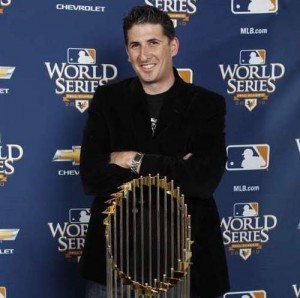

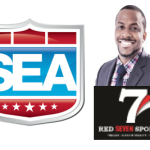
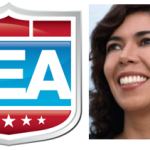
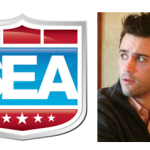
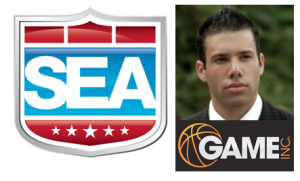
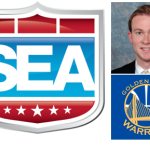
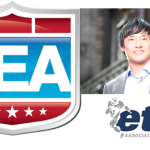
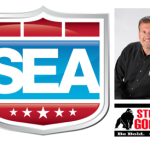
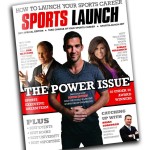
@srabe Man I love this stuff so much I have a million questions running through my head. Sounds like you’re lucky enough to cherry pick some awesome sponsors who “get it” and aren’t so focused on ROI which is fantastic.
Do you have any software in particular you use for tracking conversions? What other key conversions do you track other than ticket sales?
Cheers.
@seokiwi @srabe Hey SEOKIWI……we will be announcing a live Q&A with Bryan very soon so that he can address everyones questions.
Stay tuned to the blog for more info 🙂